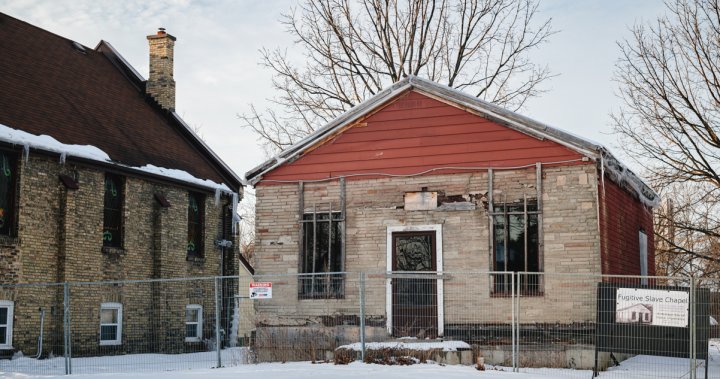
Fugitive Slave Chapel documentary honours history, preservation in London
Global News
A new documentary by Canadian Anthony Sherwood about the historic Fugitive Slave Chapel premiered Saturday at the London Public Library.
A new documentary about the historic Fugitive Slave Chapel premiered Saturday, giving Londoners in attendance an opportunity to learn more about the history behind the church and its multiple relocations.
The documentary, titled The London Chapel Project, was produced and directed by Canadian actor and filmmaker Anthony Sherwood and screened for the first time at the London Public Library’s central location as part of ongoing Black History Month events.
Sherwood, who first learned about the historic church one year ago, said he was motivated to document its history almost as soon as he heard about it.
“It would have been a great tragedy for the city of London to lose this important history,” said Sherwood after the documentary’s premiere.
The 50-minute documentary interweaves its focus between the church’s origins as a sanctuary for African Americans fleeing slavery through the Underground Railroad in the 1850s and 1860s and the work done in the 21st century to preserve it as a historical landmark for the city of London and Black community in London.
Initially the African Methodist Episcopal Church, the chapel was erected at 275 Thames St. in the early 1850s. In 1856, the chapel became the British Methodist Episcopal Church and was replaced 13 years later by a new building on Grey Street.
When exploring the history of the nearly 175-year-old chapel, Sherwood utilizes re-enactments performed by himself as Rev. Lewis Chambers and London’s Alexandra Kane as a runaway slave.
Sherwood interviewed over a dozen people for the documentary to get an understanding of the chapel’s history. He added the members of the various organizations and committees that worked to save the chapel were incredibly passionate about the project, adding the passion helped him.











